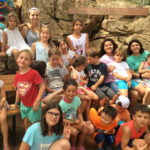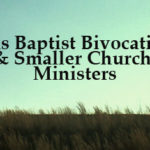KELLER—Churches in the United States are 10 times more segregated than the neighborhoods in which they are located and 20 times more homogenous than the nearest public schools, the pastor of a multi-ethnic church in Arkansas told the Global Faith Forum .
“An increasingly diverse and cynical society will not find our message of God’s love credible when it is preached from the pulpits of segregated churches,” Mark DeYmaz, pastor of Mosaic Church of Central Arkansas in Little Rock, told the multifaith gathering at NorthWood Church in Keller.

When churches get serious about reaching their communities, it forces members to ask practical questions that may make them uncomfortable, DeYmaz noted.
“Why are all the dolls in the church nursery white? Why are all the pictures of Jesus white?” he asked.
Churches in culturally diverse urban settings need to develop a multi-ethnic vision because “it is biblical and right,” DeYmaz emphasized. “It is not a matter of political correctness but spiritual correctness.”
A truly multi-ethnic church presents an irresistible picture of God’s love the spiritually lost find compelling, he continued.
Chapter 17 of John’s Gospel records the prayer of Jesus that the world—not God—might see the oneness of Christ’s followers. So, DeYmaz rejected the rationale that God sees all the universal church—Anglo congregations here, Hispanic congregations there, African-American congregations elsewhere—as one.
“That only works if we are trying to evangelize God,” he said. “It’s not God who needs to see the unity and diversity of the church. It’s the lost.”
Sign up for our weekly edition and get all our headlines in your inbox on Thursdays
Urban ministry means reaching across ethnic, racial, socio-economic and religious barriers, speakers at the Global Faith emphasized.
Ray Bakke, author of The Urban Christian and chancellor of Bakke Graduate University, described his personal experience of moving to inner-city Chicago in the mid-1960s.
“I discovered my church had fled the city. The white evangelical church took the Bible and ran,” he said.
Bakke told how he began to visit every ethnic neighborhood in the city, visit with parish priests and read ethnic literature.
“In the process, I began to love my city, and I learned to read the Scriptures in a new way,” he said, noting the word “city” appears 1,250 times in the Bible, and 142 cities are mentioned specifically.
“The Bible begins in a garden but ends in a city,” he said.














We seek to connect God’s story and God’s people around the world. To learn more about God’s story, click here.
Send comments and feedback to Eric Black, our editor. For comments to be published, please specify “letter to the editor.” Maximum length for publication is 300 words.